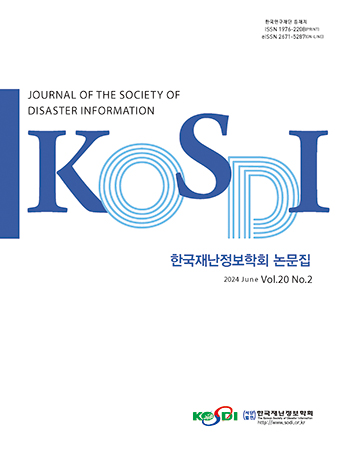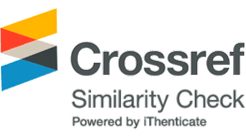Original Article
Abstract
References
Information
Purpose: The purpose of this study is to examine the path of money laundering of criminal proceeds through cryptocurrency using criminal script analysis and to devise measures to prevent and prevent criminal justice agencies from doing so. Method: Based on the results of a prior study on the profit path of cryptocurrency through money laundering and criminal cases in Korea, the path of money laundering was analyzed using criminal script techniques. Result: Most of the cryptocurrencies that have been launched are converted into criminal proceeds, which are re-launched and cashed or have a vicious cycle of being used as criminal funds are used. According to the script, the route of money laundering is mainly converted to criminal proceeds from cryptocurrency exchanges using anonymity, which is repeated several times, making it very difficult to find the money using cryptocurrency in criminal justice institutions. Conclusion: As the method of money laundering using cryptocurrency is becoming more sophisticated, legal sanctions and preventive institutionalization should be prepared for the prohibition or confiscation of cryptocurrency transactions for money laundering after understanding the flow.
연구목적: 본 연구의 목적은 가상화폐를 통한 범죄수익금의 자금세탁 경로를 범죄스크립트 분석을 이용하여 살펴보고, 이에 대한 형사사법기관의 예방 및 대책 방안을 강구하기 위함이다. 연구방법: 자금세탁을 통한 가상화폐의 수익 경로에 대하여 선행연구 조사결과와 우리나라에서 발생된 범죄사례 등을 바탕으로 범죄스크립트 기법을 활용하여 자금세탁 경로를 분석하였다. 연구결과: 자금세탁을 한 가상화폐 대부분이 범죄수익금으로 전환되고, 이 수익금은 다시 세탁되어 현금화 되거나 범죄자금으로 쓰이는 악순환이 발생되는 특징을 가지고 있다. 이에 스크립트를 통해 본 결과 자금세탁의 경로는 익명성을 이용한 가상화폐거래소에서 주로 범죄수익금으로 전환되고 있으며, 이 경로를 여러 번 반복되기 때문에 가상화폐소를 이용하여 세탁되어진 자금을 형사사법기관 등에서 찾는 것이 매우 어려운 것으로 파악되었다. 결론: 가상화폐를 이용한 자금세탁의 방법이 교묘화 되어가고 있어 이에 따른 흐름을 파악한 뒤 자금세탁에 대한 가상화폐 거래금지 또는 몰수에 따른 강력한 처벌과 피해를 예방할 수 있는 제도적 보완장치가 마련되어야 할 것이다.
- Baeck, N.J, Ryu, J., Kim, B.J. (2021). "Countermeasures study on money laundering using cryptocurrency for cyber safety." The Journal of Humanities and Social Science, Vol. 12, No. 3, pp. 1399-1414. 10.22143/HSS21.12.3.98
- Cornish, D.B. (1993). "Crime as scripts." Paper presented at the Second Annual Seminar or Environmental Criminology and Crime Analysis, University of Miami, Caral Gables. FL. US. May. pp. 26-28.
- http://www.coindeskkorea.com/news/articleView.html?idxno=73163
- https://www.hankyung.com/economy/article/2021031675656
- https://coinmarketcap.com/?page=60
- Hwang, S.J. (2018). "A legal review on abuse cases of virtual currency and legal responses." Korea Academy Industrial Cooperation Society, Vol. 19, No. 2, pp.585-594.
- Kang, S.Y. (2018). "Virtual currency, money laundering, and corruption - From law enforcement perspective -" Journal of Digital Forensics, Vol. 11, No. 1 , pp.77-91.
- Kim, H.J. (2020). "A study on criminal policy implication of crypto currency based on block chain technology in the fourth industrial revolution." Korean Research Memory, pp.183-209.
- Lee, Y.S. (2016). "The risk of money laundering and policy implications in virtual currency transactions." Korea Institute of Financ, Vol. 25, No. 38, pp. 10-11.
- Seo. J.Y. (2018). "Study on the countermeasures on the bitcoin." Police Science Institute, Vol. 32, No. 3, pp. 323-354. 10.35147/knpsi.2018.32.3.323
- Publisher :The Korean Society of Disaster Information
- Publisher(Ko) :한국재난정보학회
- Journal Title :Journal of the Society of Disaster Information
- Journal Title(Ko) :한국재난정보학회논문집
- Volume : 17
- No :3
- Pages :600-607
- DOI :https://doi.org/10.15683/kosdi.2021.9.30.600




 Journal of the Society of Disaster Information
Journal of the Society of Disaster Information







